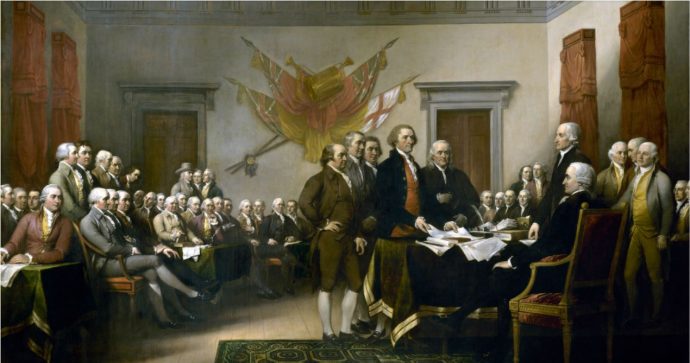Elizabeth Eastman at American Greatness teaches the lessons of the Declaration of Independence:
The colonists’ quest for independence from the British in 1776 began with a goal: “to assume among the powers of the earth, the separate and equal station to which the Laws of Nature and of Nature’s God entitle them.” Declaring independence meant that Americans were no longer subordinate to the British monarch nor subject to the British Parliament, but were equal, free, and independent.
The reasons for this dramatic action demanded explanation, as they noted: “a decent respect to the opinions of mankind requires that they should declare the causes which impel them to the separation.” Therefore, the Declaration includes two parts. There are on the one hand facts about the conduct and behavior of the British toward the colonists. On the other, there are immutable truths about the human condition. These truths have guided Americans in their quest to live and to build a just and worthy nation since they were penned.
The colonists recognized a universal standard independent of man-made governments and institutions, invoking the authority of the laws of nature and of nature’s God. The coupling of God and Nature was comprehensive. It included that which is human and of this world and that which is created by God and universal.
In his 1837 speech commemorating the Declaration of Independence, John Quincy Adams coupled the laws of nature with the dictates of justice and proclaimed: “In the annals of the human race, then, for the first time, did one People announce themselves as a member of that great community of the powers of the earth, acknowledging the obligations and claiming the rights of the Laws of Nature and of Nature’s God. The earth was made to bring forth in one day! A Nation was born at once!”
Read more: American Greatness

